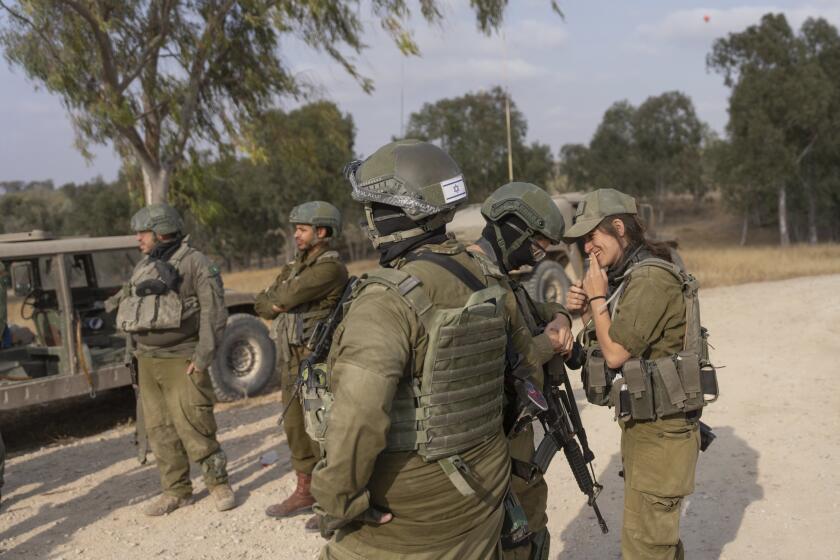Region shares underlying Thailand problems
Recent images of Thai army snipers shooting at anti-government protesters in front of a Louis Vuitton outlet during Bangkok street battles have shocked a world accustomed to postcard scenes of sandy beaches and splashing elephants.
Yet even as the spotlight glares harshly on Thailand, analysts say neighboring nations suffer conditions similar to those that have fueled the political crisis in downtown Bangkok, although they’ve generally managed to keep them in better check and prevent them from becoming as combustible.
“Many of the underlying concerns are the same throughout the region, including slower growth, poor investment in human capital and skewed income,” said Michael Montesano, a visiting research fellow at the National University of Singapore’s Institute of Southeast Asian Studies.
It wasn’t too long ago that Thailand was viewed as an economic and political beacon offering lessons on the path to democracy for Southeast Asia. But its political instability in recent years, capped by the occupation of central Bangkok since March by thousands of “Red Shirts,” as the protesters are called, has made Thailand more of a model in reverse for neighboring nations.
“What other countries take away from this crisis is that the Thai model is not one they’ll try and replicate,” said Nicholas Farrelly, an associate lecturer with the Australian National University’s department of political and social change. “And dictatorships in the region, the most extreme being the Burmese in Naypyidaw, will now be quite satisfied with themselves.”
Perhaps the most obvious lesson from Thailand, one heavily underlined by the anti-government protesters, is the growing gap between haves and have-nots: those who have benefited from globalization’s riches and those left behind.
“The government has to see what we are doing,” said Walangkana Tina, 48, a Bangkok protester chopping papayas in the capital’s protest zone. “We are not just sitting in air-conditioned rooms. We are sleeping in the middle of the sun and the rain.”
Poverty is hardly new to Southeast Asia. But the expectations of the poor have been raised by the media and opportunistic politicians, some argue, with limited policy follow-through, even as opportunities for those at the bottom have foundered, the rich have become more ostentatious and neighboring China powers ahead.
An earlier generation of rising Asian economies — Japan, South Korea, Taiwan and Singapore —saw many poor farmers find well-paying factory jobs in the cities, as have millions recently in China, but most such people in Southeast Asia have never gotten that opportunity.
Economies in Southeast Asia are smaller, and most governments failed to use a rush of foreign investment before the 1997 Asian financial crisis to jump-start education, upgrade skills and leapfrog beyond cheap-labor economies.
Now, as China booms ahead with higher efficiency and plentiful investment capital, many Southeast Asian nations find themselves increasingly squeezed, leaving those at the bottom with low-paying jobs in tourism and related service sectors.
All the while, the poor are watching a privileged nouveau riche class in Bangkok, Kuala Lumpur, Jakarta and Manila driving flashy cars, traveling abroad and doing increasingly well.
Fanning the flames of resentment are corruption, weak institutional reform, political intransigence and use of the courts to frustrate upward political mobility.
This has led to the Red Shirts in Thailand, “people power” in the Philippines and, a little farther afield, the Maoists in Nepal. Feelings that the system is rigged can be sparked by one leader’s ability to raise expectations, as seen in Thailand with former Prime Minister Thaksin Shinawatra.
Whether Thaksin’s administration fully delivered on his promise to help the poor is a matter of debate, but he changed the political conversation, giving many poor and disenfranchised Thais hope of a better life.
His ouster in 2006 in a military coup amid corruption charges, followed by crushing court decisions against two subsequent pro-Thaksin governments, only fueled suspicion among Thaksin supporters of heavy-handed string-pulling by an elite clique.
“There is a stereotype that we are poor and uneducated,” said Red Shirt spokesman Sean Boonpracong. “But we are made up of people who can think for themselves.”
Similarly, Malaysia’s ruling United Malays National Organization has been accused of manipulating the courts for political gain in a bid to safeguard power and stem a populist tide backing opposition leader Anwar Ibrahim.
Adding to the resentment is the role of the business elite, in a region that has long seen the biggest deals going to a few politicians, tycoons or military brass able to procure government contracts, with small businesses left struggling.
“Since the current government came into power, my business has been very bad,” said Viraj Sirikajornroj, 48, a Bangkok car parts seller. “I don’t like double standards.”
“People power” movements can spotlight issues long ignored, but they have the potential to spiral out of control, as has been happening in Bangkok, as well as bring about relatively peaceful change, as seen in the Philippines.
“It’s possible that protest movements can be used to alleviate some of the political pressure,” said Paul Chambers, a senior research fellow at Germany’s Heidelberg University. “But the Red Shirt leaders have wanted more and more. It’s like a bull at a rodeo that starts to buck, and the leaders can’t stay on top.”
Although Thailand and its neighbors share a number of similarities, Southeast Asia’s second-largest economy has unique cultural, political and economic factors that have made its political development distinct, including its constitutional monarchy.
King Bhumibol Adulyadej, 82 and hospitalized, is deeply revered, but social mores have slowed reforms or open debate on the succession, a situation that some say has further strengthened the political and economic status quo.
Another issue undercutting regional development has been military interference in politics, as witnessed in Indonesia, the Philippines, Myanmar and Thailand as armed forces resist the transition to civilian-led rule befitting a modern democracy.
“The Thai military after the 2006 coup proved itself very ineffective in governing,” said Bridget Welsh, an associate professor of political science at Singapore Management University. “Now it’s proving itself to be a henchman rather than an institution.... How militaries are transforming themselves is crucial.”
Now that the army has removed the demonstrators from their makeshift camp in downtown Bangkok at the cost of dozens of lives, many in Thailand hope the government will address the Red Shirts’ underlying resentment, lest protests return in a new, potentially more destructive form.
“We are trying to fight for democracy,” said Weng Tojirakarn, another Red Shirt leader, shortly before the army’s offensive. “We want equality in politics, in economics, in culture, in education and healthcare.”
Magnier reported from New Delhi and Tran from Bangkok.
More to Read
Start your day right
Sign up for Essential California for news, features and recommendations from the L.A. Times and beyond in your inbox six days a week.
You may occasionally receive promotional content from the Los Angeles Times.






